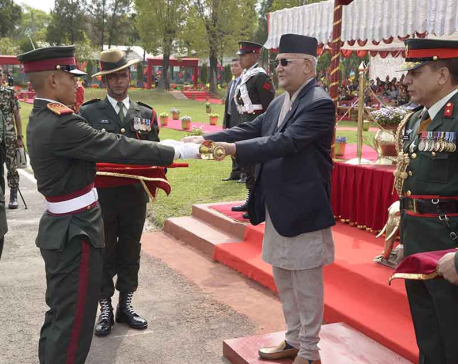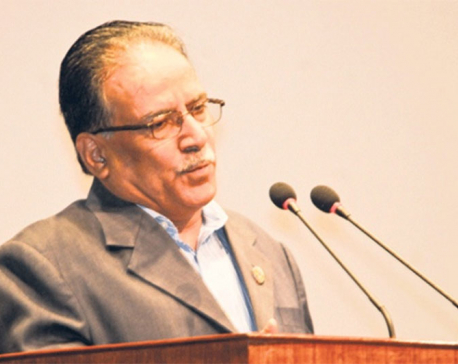
OR
Transitional justice bodies
One reason CPN (Maoist Center) decided to withdraw its support from the KP Sharma Oli-led government was that senior Maoist leaders felt Oli and his CPN-UML party were not doing enough to protect the Maoists against charges of war crimes. The 9-point agreement between the two parties on May 5th had more or less guaranteed blanket amnesty for senior Maoist leaders, as the two sides agreed to “immediately initiate the process to withdraw or give clemency on insurgency era cases”. But when the Maoists felt that Oli was not committed to keeping his side of the bargain on transitional justice—nor to hand over power to the Maoists as had been previously agreed—the party of Pushpa Kamal Dahal decided enough was enough and pulled out of the government. The new 7-point agreement they now have with Nepali Congress to unseat Oli also speaks of the urgent need to “amend laws related to transitional justice mechanisms”, purportedly to make them more effective. But those privy to high-level discussions between the two parties leading up to the 7-point deal say that the new understanding, again, is for clemency for all Maoist and Congress leaders linked to conflict-era crimes.
Political parties must understand that the rights of conflict victims are not things that can be bargained away.
This means that none of the three main parties is really committed to empowering the two transitional justice bodies—the Truth and Reconciliation Commission (TRC) and the Commission of Investigation on Enforced Disappeared Persons (CIEDP)—so that they can properly investigate the conflict-era cases that have been filed with them. The two bodies have repeatedly complained about lack of resources, both in terms of manpower and material. But their pleas seem to have fallen on deaf ears. Instead we get to hear of how our security agencies, chiefly Nepal Army, have taken an active interest in knowing if there have been any cases filed against senior army officers and who have filed such cases. Such incidents have further dented the credibility of Nepali transitional justice process, which has already come under heavy criticism from both domestic and international rights watchdogs. They believe the legislation on transitional justice, as we have it, undermines the right of conflict victims to adequate redress. But with over 52,000 cases filed with the TRC alone, conflict victims have not abandoned all hope.
Our political parties must understand that the rights of conflict victims, who have already waited for justice for over a decade, are not things to be bargained away in political negotiations. But it increasingly looks like transitional justice will be made a victim of political calculations as the complaints that have been registered with TRC reportedly involve top leaders like Maoist chairman Dahal and Congress President Sher Bahadur Deuba. Now there must be credible assurance from political parties that they won’t obstruct investigations even if one of their own is involved. If justice is subverted because of such petty political calculus, it could plant the seed of another protracted conflict in Nepal, even as the country is still struggling to come to terms with the decade-long Maoist insurgency. We would thus like to urge the political parties to let the two bodies do their work fairly and independently. It is important that justice is seen to be done. Moreover, if even grave rights violations from conflict period are to be ignored, it will send a troubling message that if you have the right political connections in Nepal you can get away even with cold-blooded murder.
You May Like This

PM draws attention against increasing extremism in country
BHAKTAPUR, April 12: Prime Minister KP Sharma Oli has warned against the increasing number of violent activities that are leading... Read More...

Nepal's peace process failed to grab due attention: PM Dahal
Kathmandu, March 30: Prime Minister Pushpa Kamal Dahal has said the success stories relating to peace process in Nepal failed... Read More...

UN goodwill envoy calls attention to disaster risk reduction
KATHMANDU, June 25:United Nations Development Program Goodwill Ambassador Michelle Yeoh said that the disaster risk reduction was vital for achieving... Read More...



Just In
- World Malaria Day: Foreign returnees more susceptible to the vector-borne disease
- MoEST seeks EC’s help in identifying teachers linked to political parties
- 70 community and national forests affected by fire in Parbat till Wednesday
- NEPSE loses 3.24 points, while daily turnover inclines to Rs 2.36 billion
- Pak Embassy awards scholarships to 180 Nepali students
- President Paudel approves mobilization of army personnel for by-elections security
- Bhajang and Ilam by-elections: 69 polling stations classified as ‘highly sensitive’
- Karnali CM Kandel secures vote of confidence















Leave A Comment